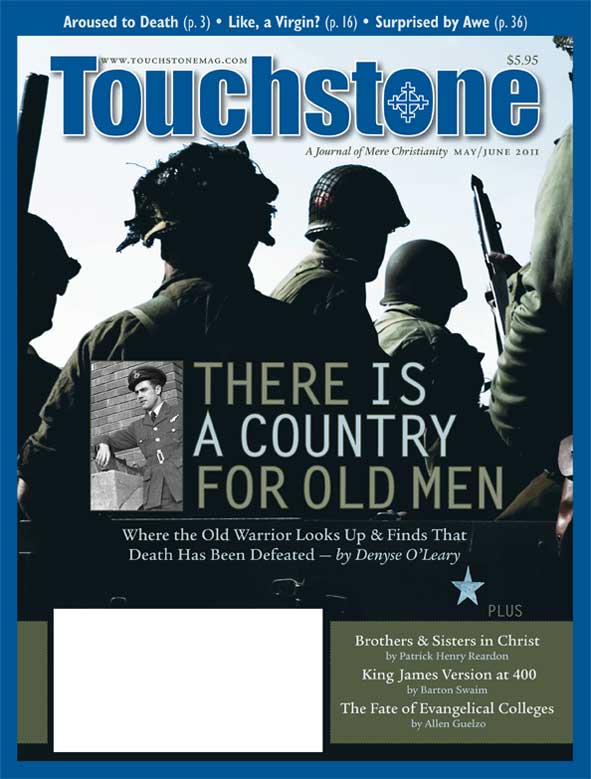Truth Recall
Saving Leonardo: A Call to Resist the Secular Assault on Mind, Morals, and Meaning
by Nancy Pearcey
B&H Publishing Group, 2010
(336 pages, $26.99, hardcover)
reviewed by Richard Weikart
How can we as Christians best stand against our society’s wholesale destruction of human life through abortion? How can we resist the rising tide of sexual immorality that is swamping our culture? Where can we find a fulcrum to overturn the moral relativism that threatens to dehumanize us and destroy our culture?
As Nancy Pearcey explains in her powerful new book, a good first step is to recognize the secular worldview that underpins the moral relativism pervading our culture. It is not enough to rail against homosexuality or abortion or sexual immorality. With this approach we might hold onto (some of) the faithful. However, with those who have embraced a secular worldview, it will be about as effective as pouring water on a duck. Their worldview insulates them from such tirades, and they will be likely to come to see Christians only as intolerant, unloving bigots. We need to find ways to penetrate their defenses by focusing our attack on the foundations of secular thought.
The way to resist much of the malaise in our society, then, is to understand the powerful lies that control its intellectual and cultural currents. Much of Pearcey’s book is dedicated to exploring the ways in which secular thought has influenced high culture, especially painting and literature. However, in the first three chapters she shows how secularism has permeated politics and the media, and in the last chapter she discusses its influence on modern movies.
The Fact/Value Dichotomy
One of the most pernicious elements of modern secularism, according to Pearcey, is its vision of truth, which taints just about everything else. Our society is permeated with the view that knowledge is divided into two distinct realms: facts and values. According to this dichotomy, facts constitute objective, universal knowledge derived from science and empirical study, while values are subjective. Facts can be true, but values are merely opinion.
In this scheme, religion, morality, and aesthetics are relegated to the realm of individual preference. “Should I get an abortion or not?”, then, has the same objective significance as, “Should I buy that green dress or get the blue one?” Answer: Whatever works for you. Whatever is true for you.
One of the strengths of Pearcey’s new book is that it explains the historical development of this fact/value dichotomy. She identifies two main streams of secular thought since the eighteenth century that represent the two poles in the dichotomy: Enlightenment rationalism and Romanticism. Enlightenment rationalism focused on science and empiricism, i.e., the factual realm. Romanticism arose as a reaction against rationalism and focused on individual creativity and subjectivity.
Pearcey categorizes just about every major intellectual and cultural current in Western thought into these two categories. This works fairly well, though many worldviews contain elements of both and resist such easy categorization (as Pearcey seems to recognize).
The bulk of the book explores the ways that the arts, especially the visual arts, exemplify various intellectual movements. The book is amply illustrated (the list of images is six pages long!), so visual learners will be richly rewarded by it.
Engagement for Christ
Saving Leonardo is brilliant, not only intellectually but also, and more importantly, spiritually. As in her earlier works, Total Truth and How Now Shall We Live? (the latter co-authored with Charles Colson), Pearcey reminds us that developing a Christian worldview is not just an intellectual exercise, but an integral part of Christian discipleship:
We nurture love for God by studying a biblical worldview to become more deeply acquainted with his truth, his character, his purpose in history and in our lives. And we demonstrate love for others when we study their worldview to get inside their thinking and find ways to connect God’s truth with their innermost concerns and questions. (p. 18)
When you read Pearcey’s important book, do not skip the epilogue (which should be called its conclusion, in my opinion). Here she issues her call to arms, enjoining Christians to be producers of excellent art, music, and other forms of culture.
Sometimes when I hear prominent Christian intellectuals calling fellow Christians to engage our culture, I cringe, because in my view many Christian intellectuals have themselves imbibed too much secular culture and try to synthesize it with their Christianity. However, Pearcey has accomplished the remarkable feat of engaging our culture to influence it for Christ, rather than integrating secular thought and culture into Christianity. •
Richard Weikart is professor of history at California State University, Stanislaus, and author of From Darwin to Hitler: Evolutionary Ethics, Eugenics, and Racism in Germany and Hitler's Ethic: The Nazi Pursuit of Evolutionary Progress (both from Palgrave Macmillan). Some of his writings can be found at www.csustan.edu/history/faculty/weikart.
subscription options
Order
Print/Online Subscription

Get six issues (one year) of Touchstone PLUS full online access including pdf downloads for only $39.95. That's only $3.34 per month!
Order
Online Only
Subscription

Get a one-year full-access subscription to the Touchstone online archives for only $19.95. That's only $1.66 per month!
bulk subscriptions
Order Touchstone subscriptions in bulk and save $10 per sub! Each subscription includes 6 issues of Touchstone plus full online access to touchstonemag.com—including archives, videos, and pdf downloads of recent issues for only $29.95 each! Great for churches or study groups.
Transactions will be processed on a secure server.
more from the online archives
calling all readers
Please Donate
"There are magazines worth reading but few worth saving . . . Touchstone is just such a magazine."
—Alice von Hildebrand
"Here we do not concede one square millimeter of territory to falsehood, folly, contemporary sentimentality, or fashion. We speak the truth, and let God be our judge. . . . Touchstone is the one committedly Christian conservative journal."
—Anthony Esolen, Touchstone senior editor









